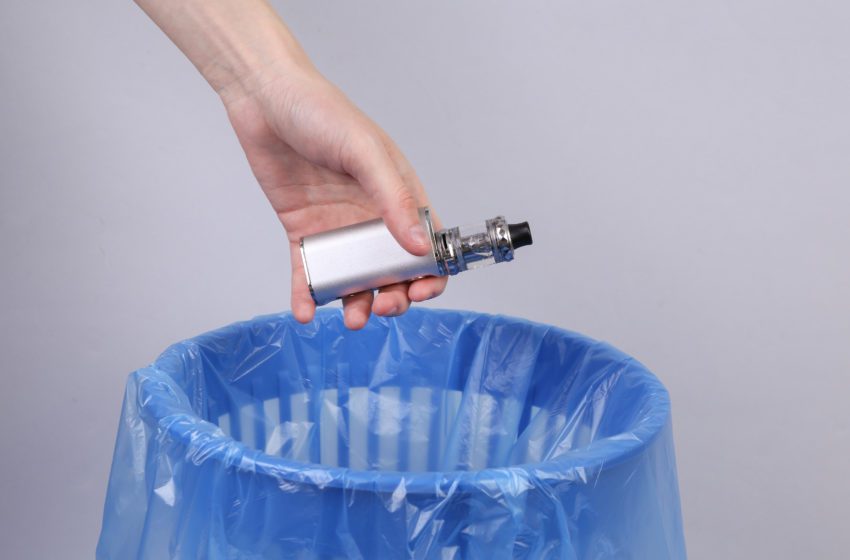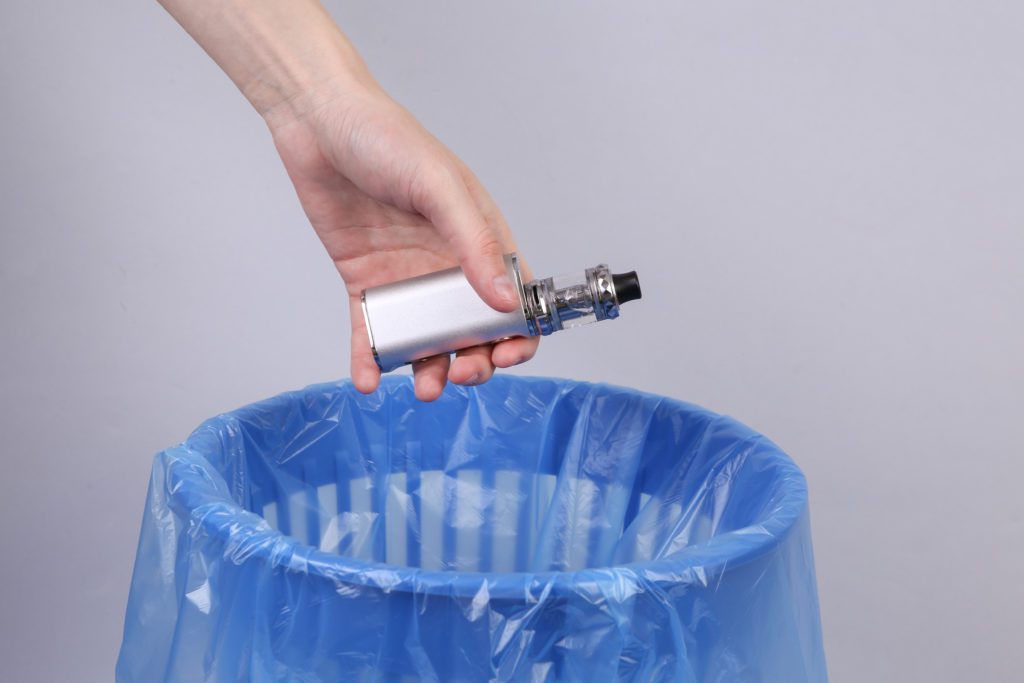One-Use Vape Trash a Concern, California Pushes for Ban
- News This Week Sustainability
- February 4, 2022
- 3 minutes read

Credit: Splitov27

California lawmakers want to ban single-use cigarette filters, e-cigarettes and vape products in the state with the aim of benefiting the environment and public health, according to a story in The Los Angeles Times.
It’s a growing concern as the Cahaba Riverkeeper in Alabama is pleading to the public to properly dispose of vaping devices. As e-cigarette usage has skyrocketed in popularity, so has the number of vaping products and accessories they’ve seen in the watershed, according to CBS 42.
David Butler, the Cahaba Riverkeeper, explains that the effect of lithium ion batteries and vaping chemicals has on local wildlife and waterways is still unknown. But the rise in the amount of devices ending up in the river, Butler says is cause for concern.
Vaping devices like the one pictured above have increasingly been found in the Cahaba Riverkeeper.
“It has the battery in it, it has the chemicals that are used in the vape juice, metal, plastic, the wrapping,” Butler said. “What impact will that have on the environment? We don’t know.”
California’s Assembly Bill 1690 would authorize local prosecutors to levy a fine of $500 per violation, defined as the sale of one to 20 items.
Supporters of the bill say cigarette filters offer no health benefits but cost the state millions of dollars to clean up and release toxic microplastics into the environment.
Roughly 12 billion cigarettes are sold in California each year, 90 percent of which are filtered, according to San Diego State epidemiology and biostatistics professor Thomas Novotny.
Nicholas Mallos, senior director of the Trash Free Seas Program at the Ocean Conservancy, said that in 2020 cigarette butts made up nearly 30 percent of the trash collected by volunteers on Coastal Cleanup Day. The city of Los Angeles alone incurs an estimated $19 million a year in cigarette filter clean-up costs. Public agencies statewide spend about $41 million a year.
The bill also targets vape products, which contain batteries and fluids that damage the environment. Reusable and rechargeable vape products would still be available under AB 1690.
Similar bills previously proposed have been unsuccessful due to “tobacco money,” according to proponents of the legislation. Assemblymember Mark Stone believes this time will be different due to a “growing awareness” of the issues and a “stronger coalition” of supporters.
The bill does not include a target date for when the ban would take effect.